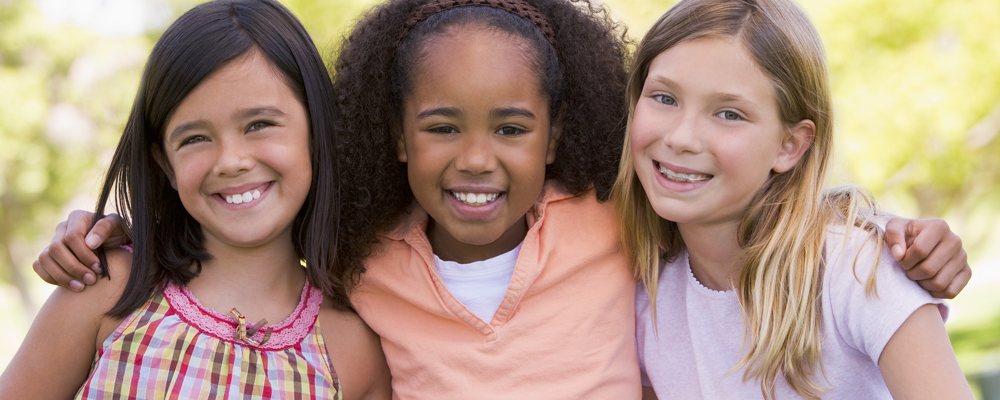Juvenile scoliosis is scoliosis diagnosed in children between the ages of 4 and 10 years old. Statistics show that curves detected in the pediatric scoliosis population have an increased risk of progression. According to the Scoliosis Research Society (SRS), 95% of juvenile scoliosis cases will eventually undergo surgery. Another study cites 70% will progress to the point of surgery. Either way, not good odds!
Clinically, at Scoliosis 3DC®, this has not been our experience for patients with juvenile scoliosis. Our treatments for young children with scoliosis offer families the opportunity to take a proactive approach at a critical time as opposed to the current medical model which usually recommends ‘watch and wait.’
Conservative Treatment Options for Juvenile Scoliosis

Schroth Method Based Instruction for Juvenile Scoliosis
Depending on the degree of curvature and the patient’s maturity level, treatment for juvenile scoliosis may begin with instruction in the simplest scoliosis-specific exercises that are components of our Schroth program. This may include teaching daily postural modifications (ADLs) and/or physiologic® exercises for the sagittal plane that are relatively easy to learn and practice at home. When applicable, we also teach mobilization exercises (active, passive and active-resisted) to perform at home with mom and dad. Our methodology is designed to address developing curve(s) and noticeable spinal imbalances and asymmetries (for example, unlevel shoulders, hip prominence, etc.).
Unfortunately, some juvenile scoliosis patients are not yet candidates for our complete Schroth program. Young children often lack the attention and ability to understand Schroth rotational breathing concepts, however, we gauge this on an individual basis. For the under ten-year-old set, the process usually begins with shorter sessions with more prolonged treatment intervals than for adolescents, and that’s okay!
When your child is our patient, we monitor their progress, closely. Depending on the severity of scoliosis and other individual factors, we add Schroth breathing concepts and exercises as physical and intellectual development occurs.
Be assured that when your child is our patient, Dr. Marc, Amy and Kim go out of their way to make visits as light-hearted as possible, even fun. We are proud to say that kids actually like coming to Scoliosis 3DC® and they learn to take ownership of their scoliosis.
Bracing Juvenile Scoliosis
When Cobb angle exceeds 20º, it’s a time for heightened vigilance for parents of children with juvenile scoliosis. Whether or not bracing is recommended will also depend on a combination of factors other than Cobb angle. These include age, stage of development, existing postural imbalances, and family history. As the 25º mark approaches, a bracing recommendation is more likely.
Scoliosis Bracing for Juvenile Scoliosis
Depending on the case of juvenile scoliosis, when a patient has a curve measuring 20º – 25º, or more, we typically recommend immediate bracing. The purpose of this is to stay ahead of the curve and work toward spinal improvement as a child grows. At this point, we feel strongly that continuing to ‘watch and wait’ while failing to take proactive steps is not in your child’s best interest. Our opinion takes into account the current literature and known statistics on juvenile scoliosis. By taking the appropriate actions, sooner rather than later on, parents can take steps to attempt to use their child’s remaining growth as an opportunity for correction.
Our approach to scoliosis bracing for young children is to take advantage of growth to remodel the spine. A well-designed brace accomplishes this by using strategic pressure points to target scoliosis curves and uses voids/openings in the brace to replicate Schroth breathing while the child wears their scoliosis brace. This approach is customized to the individual and differs significantly from other scoliosis braces used here in the US for years (the Boston brace, the Charleston brace, the Providence brace, the Wilmington Brace etc.).
With juvenile scoliosis, there are advantages to bracing early. One is that younger children, as a rule, are more likely to have flexible spines. This makes the spine more amenable to bracing and increases the likelihood of a very good in-brace correction. In-brace correction is important for reducing asymmetrical spinal loading during growth so that the spine can grow properly.
For patients that get overcorrection in-brace (spine moves past the middle to the opposite side), there is an excellent opportunity for net correction out-of-brace. Another advantage to bracing early is that most young patients are more eager to please the adults in their lives and are especially cooperative with brace wear compared to those who first experience scoliosis bracing in adolescence.
At Scoliosis 3DC®, we accept juvenile patients on a case by case basis. If you have interest in learning more, please contact us.

